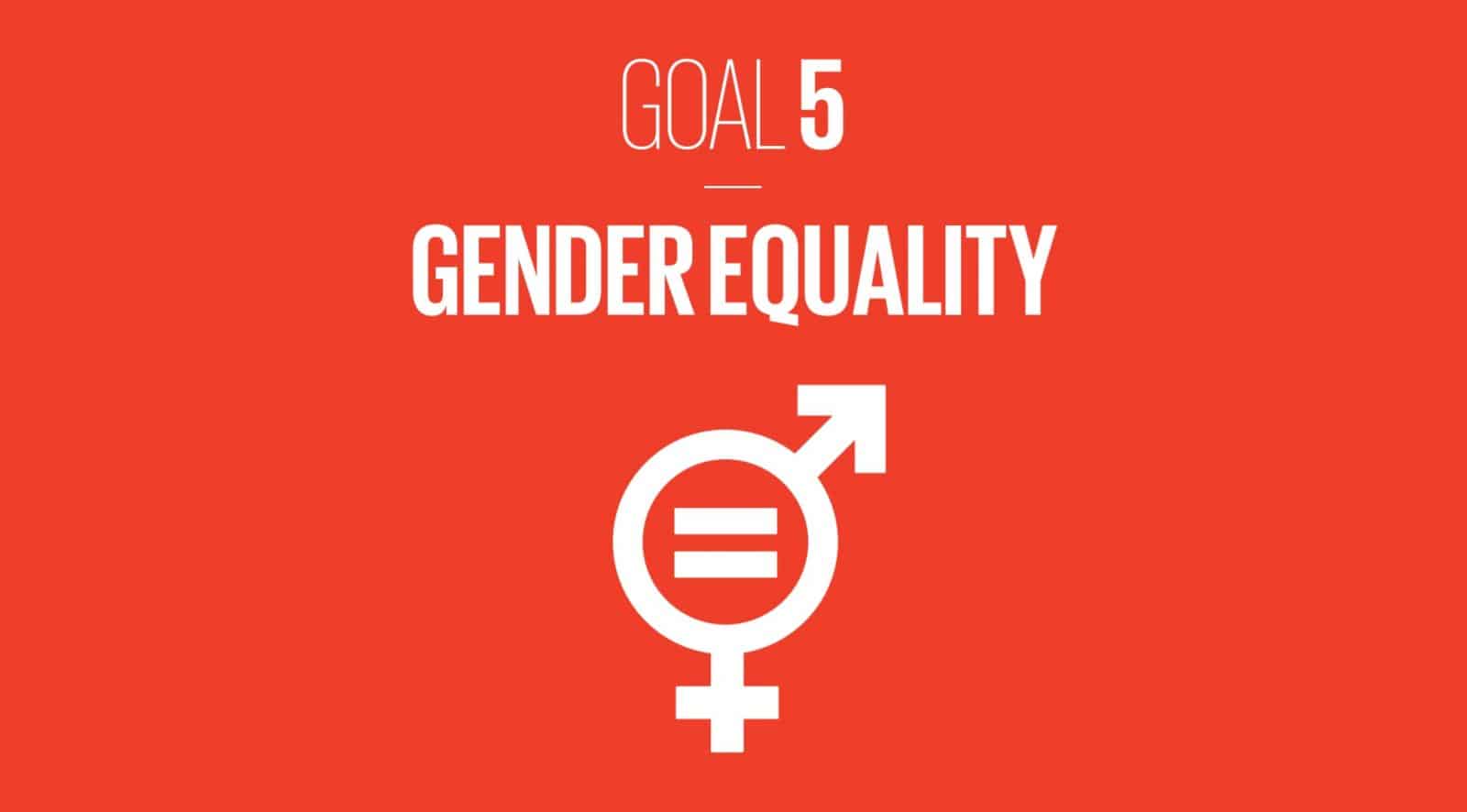
Written by Elodie Arpa
In 2015, all United Nations (UN) member states agreed on 17 Sustainable Development Goals as a “blueprint to achieve a better and more sustainable future for all.” As part of the 2030 UN agenda, they aspire to create a world without poverty, zero hunger, good health, quality education, and decent work, among others. At first glance, it may seem unrealistic to expect these Sustainable Development Goals (SDGs) to be achieved in ten years. However, past successes such as cutting global hunger in half in less than 25 years and finding a vaccination to prevent Polio give us reasons to remain optimistic.
While all 17 goals are interconnected to some degree, SDG 5 on gender equality provides the basis for most of the others and should, therefore, be seen as an essential condition for achieving any long-term political, economic, environmental, or social goal. One could even go as far as to say that if we lived in a gender-equal world, none of the issues that the UN Agenda 2030 tries to combat would exist. Thus, if we do not manage to end gender discrimination, the remaining 18 SDGs will not be achieved – not in ten years or at any other date.
This certainly is a strong and even provocative statement to make, but after looking at statistical data, one cannot help but come to this conclusion. Addressing inequalities between the sexes would undoubtedly drive progress across the UN Agenda 2030, including SDG 1 (no poverty), SDG 4 (quality education), SDG 8 (decent work and economic growth), SDG 10 (reduced inequalities), SDG 13 (climate action) and SDG 16 (peace, justice, and strong institutions).
To begin with SDG 16 on peace, justice, and strong institutions, studies show that women’s participation in peace negotiations has highly positive effects. For instance, the Northern Ireland Women’s Coalition – while only making up 10% of the negotiation body – played a crucial role in the lead up to signing the Good Friday Agreement, which ended most of the violence of the political conflict in Northern Ireland. As honest brokers, these women were respected by both the Catholic and the Protestant parties and mobilized civil society to work toward conflict resolution. In other cases, namely in Israel and Palestine or in the Philippines, the inclusion of women in peace processes has led to similarly positive outcomes. What is more, it seems that female political participation is a source of conflict prevention in itself, so that countries in which women have a say on security issues are less likely to get involved in armed conflicts in the first place.
Concerning SDG 1 (no poverty) and SDG 8 (decent work and economic growth), it is important to know that women are overrepresented among the poorest segment of the world’s population. Over 330 million women and girls worldwide live under 1.9 USD a day. While many people believe this economic disparity to be only relevant in Africa and Asia, women in Europe are facing similar financial threats. Single mothers and female pensioners are among the poorest people on our continent. The reasons for this are diverse: for women of previous generations, it was common to become housewives and be financially dependent on their husbands, leaving them with little to no money in case of divorce or their husband’s death. Nowadays, large numbers of women pursue low-paying jobs such as being a nurse, a teacher or a shop assistant. This is not to mention the ever-prevailing pay gap, meaning that women get paid less for doing the same job as their male colleagues. Also, women are still doing the majority of unpaid work, such as child-upbringing, housework, taking care of elderly people. Lastly, the lack of affordable childcare facilities forces many women to work part-time, which badly affects not only their careers but also Europe’s overall economic growth.
On the topic of quality education (SDG 4), it is worth noting that two-thirds of the world’s illiterate people are female. In Europe, we luckily do not have to worry about this issue: on average, girls get better grades and are more likely to enroll at university than their male counterparts. What Europe desperately needs, however, is to use all its human potential to stay innovative and competitive in the future. Thus, encouraging girls to study STEM subjects and become programmers, mathematicians or engineers is more important than ever.
Lastly, working towards gender equality has a direct effect on climate action. For lots of women, climate change is a very real phenomenon and statistically, women and children are 14 times more likely to die during a natural disaster than men. Not only are women more environmentally conscious in their consumer behaviour (and buy more organic and local food), they are also more willing to get active to protect the climate as well as endangered species. For instance, the majority of Fridays for Future activists fighting for environmental protection are girls and young women.
To conclude, the UN Agenda 2030 provides a guideline for the international community regarding how to face the global challenges of our time. The success of the 17 SDGs, however, relies upon the willingness of every one of us to change our behaviour and elect representatives that will create more sustainable and fair policies for all. Statistical data makes it clear that discrimination of any sort hinders political, economic, environmental as well as social progress. Therefore, it is time to end gender inequality and unleash our world’s full human potential. If we do so, who knows how bright the future could look like?
References
Sustainable Development Goals Knowledge Platform; retrieved February 25, 2020, from https://sustainabledevelopment.un.org/?menu=1300
UN Women: Women and the Sustainable Development Goals (SDGs); retrieved February 26, 2020, from https://www.unwomen.org/en/news/in-focus/women-and-the-sdgs
Georgetown Institute for Women, Peace and Security: Women Leading Peace, 2015, from https://giwps.georgetown.edu/wp-content/uploads/2017/08/Women-Leading-Peace.pdf
Council on Foreign Relations: Women‘s Participation in Peace Processes; retrieved February 26, 2020, from https://www.cfr.org/interactive/womens-participation-in-peace-processes
UN Women: Women and the Sustainable Development Goals (SDGs); retrieved February 26, 2020, from https://www.unwomen.org/en/news/in-focus/women-and-the-sdgs
The Guardian: Two-thirds of world’s illiterate adults are women, reports find; retrieved February 28, 2020, from https://www.theguardian.com/global-development/2015/oct/20/two-thirds-of-worlds-illiterate-adults-are-women-report-finds
UN Women: Women and the Sustainable Development Goals (SDGs); retrieved February 26, 2020, from https://www.unwomen.org/en/news/in-focus/women-and-the-sdgs
Clean Energy Wire: „Fridays for Future” strikes have expanded far beyond just students – study; retrieved February 28, 2020, from https://www.cleanenergywire.org/news/fridays-future-strikes-have-expanded-far-beyond-just-students-study

 Is EU citizenship for sale – or for keeps? A critical analysis of the CJEU’s Golden Visa ruling.
Is EU citizenship for sale – or for keeps? A critical analysis of the CJEU’s Golden Visa ruling.  The European Union in Space: From exploration and innovation to security and autonomy
The European Union in Space: From exploration and innovation to security and autonomy  The Rise of the Right: The Threat Right-Wing Extremism Poses to Women and Feminist Efforts in Germany
The Rise of the Right: The Threat Right-Wing Extremism Poses to Women and Feminist Efforts in Germany  The silent shield – how special operations safeguard the global supply chain
The silent shield – how special operations safeguard the global supply chain 


